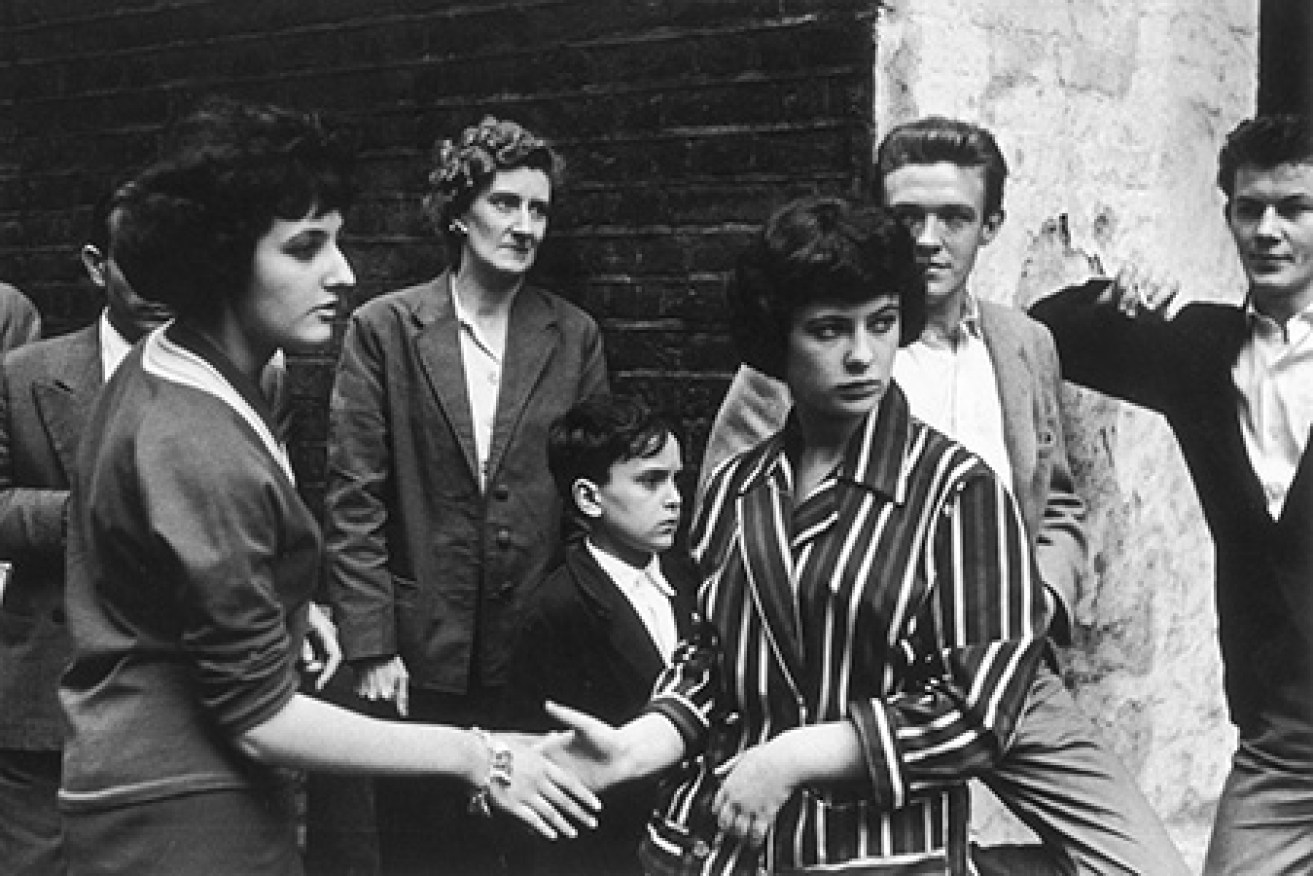‘Quarter-life crises’ affecting those in 20s


Soho teenagers in typical late 1950s attire of suits, striped jackets and pullovers meet and greet each other on the street Date: 1959
Despite their hundreds of Facebook friends, completed TAFE and university courses and the promise of love and career progression, twenty-somethings seem to be hitting very premature crises – crumbling under pressure and feeling lonelier than ever.
Rebecca Langtree, 21, a musician who works casually in retail in Cairns, is one of many young adults experiencing a quarter-life crisis.
• What young Aussies really get up to on Tinder
• The new wedding trend that’s costing a fortune
• How to win big in the game of love
Working 70 hours a week and dealing with relationship issues, she said she is struggling to cope with the stress.
“I am 100 per cent having a quarter-life crisis. I feel completely swamped, utterly consumed. I have no balance in my life. I have so much pressure on me to prove myself in my industry,” Ms Langtree told The New Daily.
“Regardless of the amount I take on, nothing seems to change except the steady decline of my sanity.”
Social media ‘creates a lonely existence’

Social media may be the cause of the quarter-life crisis. Photo: Getty
Clinical social worker Debbi Carberry blamed the phenomenon on Facebook and other social media websites for creating emotionally fragile young adults who are less able to face up to life’s challenges.
“They are the most connected electronically and disconnected emotionally,” Ms Carberry told The New Daily.
“The thing is, 1000 friends on Facebook actually means nothing. It’s more important to have three friends that you can count on.”
Social media might also cause young adults to feel inadequate when they compare themselves to their peers, Ms Carberry said.
IT recruitment consultant Hanming Liu, 21, of Brisbane said it is difficult not to make comparisons to his peers, despite knowing that social media only presents life’s highlights.
“It’s incredibly easy to forget this when all you see are people just like you making headway in their careers or off exploring exotic countries, while you’re sitting alone in your room on a Friday night watching 90s cartoon reruns.”
Cotton wool kids ‘more fragile’
Valerie Driscoll, who is about to celebrate her 81st birthday, said people seemed to be better able to cope with adversity in her day.

Valerie Driscoll says previous generations of young people were more accustomed to adversity. Photo: AAP
“Life isn’t easy for anyone and you get your knocks, but it was easier to sort of bounce back in those days because you were half used to it,” Mrs Driscoll said.
She agreed that young adults today face serious issues of unemployment and financial insecurity, which could be contributing to their stress levels.
“A lot of young ones, if it’s not going, well, they find it harder to take the setbacks.”
But a psychologist told The New Daily she is confident that despite the new difficulties of young adulthood, this generation will successfully navigate life’s tricky waters.
“It’s the next generation. They’ll work it out the same as the generation before,” YoungMinds director Dianne O’Malley said.
“There are different hurdles to jump and I am sure they will jump them.”
How to avoid the crisis
So how can young adults avoid the quarter-life crisis altogether?
Ms O’Malley said there are certain practices that may help young people deal better with the emotional stresses of their twenties.
They can:
• Accept that times can be tough;
• Engage in positive self-talk to develop resilience and build your self-esteem;
• If social media is a problem for you, consider not using it;
• Understand that Facebook friends are not a measure of self-worth; and
• Become aware of your thoughts and challenge them if they are not helpful.









